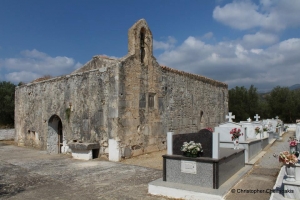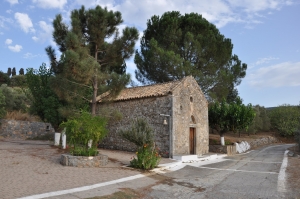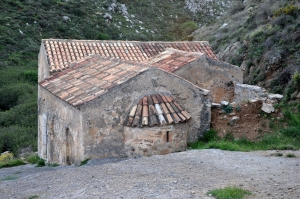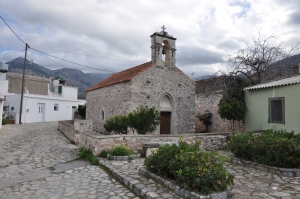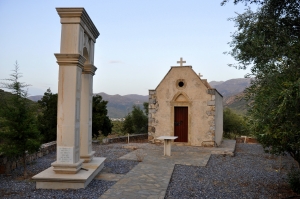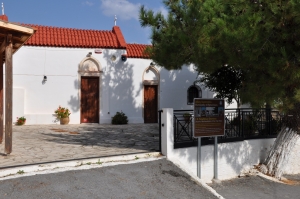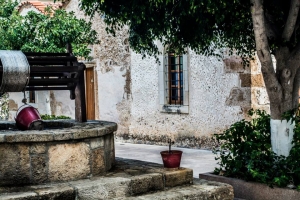Half a kilometer away from the small hamlet Liliano, very close to the airport of Kastelli, lies another treasure of the Cretan hinterland. This is the cemeterial church of Agios Ioannis Rigologos celebrating on August 29.
The church of Panagia Pantanassa (dedicated to the Assumption of the Virgin Mary) is located in a wooded area west of the village Avdou and was built in 1600 at the expense of Nikolaos Ligizos. The church bears a beautiful embossed marble doorframe and backside frame.
The Church of the Saviour Christ of the 14th century is located close to Potamies and is a single-nave vaulted temple with a pitched roof and the doorway on the west side of the church. It presents a simple architectural style with slightly pointed subsections.
Near the village Galifa, province Pediada, survives the two-aisled church of Agia Paraskevi and Agios Panteleimon. The temple dates back to the 13th century and bears great frescoes of a provincial painter, in very good condition.
The church of St. George at center of the village Embaros is the most important Byzantine monument in the wider area. The church was built in 1436 and bears frescoes drawn by the painter Manuel Fokas in the 15th century.
The village Avdou gets its name from the prophet Obadiah. At position Lines locals restored a ruined temple that was believed to have belonged to the prophet Obadiah. The church celebrates on November 19.
At the small and picturesque village Galype at province Pediada we meet a very remarkable church dedicated to the Assumption of Virgin Mary (Panagia). The church of Panagia celebrates on August 15 and it is a good opportunity for someone to visit the interior of the temple (as it is locked all yaer round for its protection).
The church of Panagia Galatiani or Galeniani is located in Malia and consists of three aisles, as a result of the successive addition of two aisles to the originally single-naved 14th-century temple that today forms the central aisle. The three aisles are dedicated to the Holy Ten Cretan Martyrs (Agii Deka), the Presentation of Mary (Panagia) and Saint Charalambos





